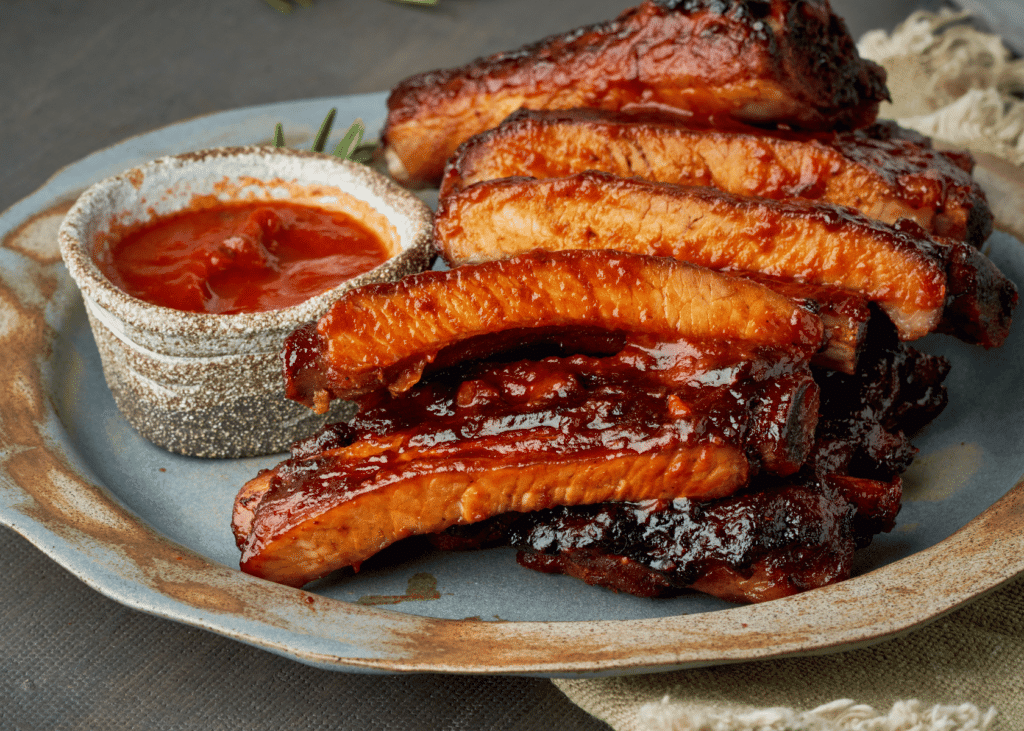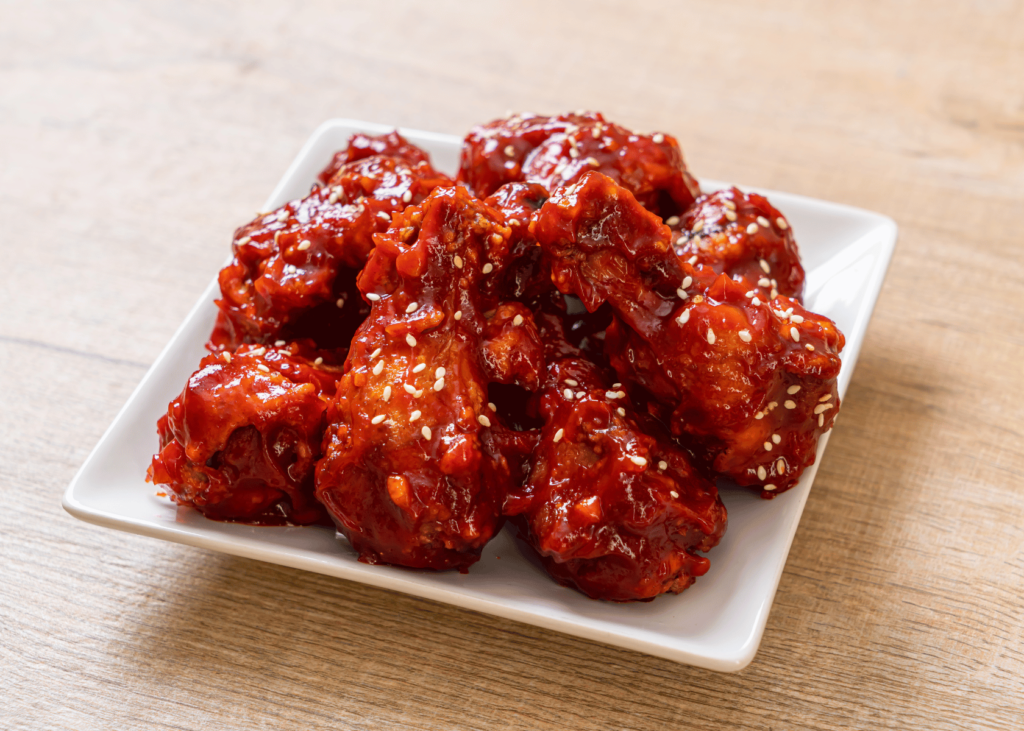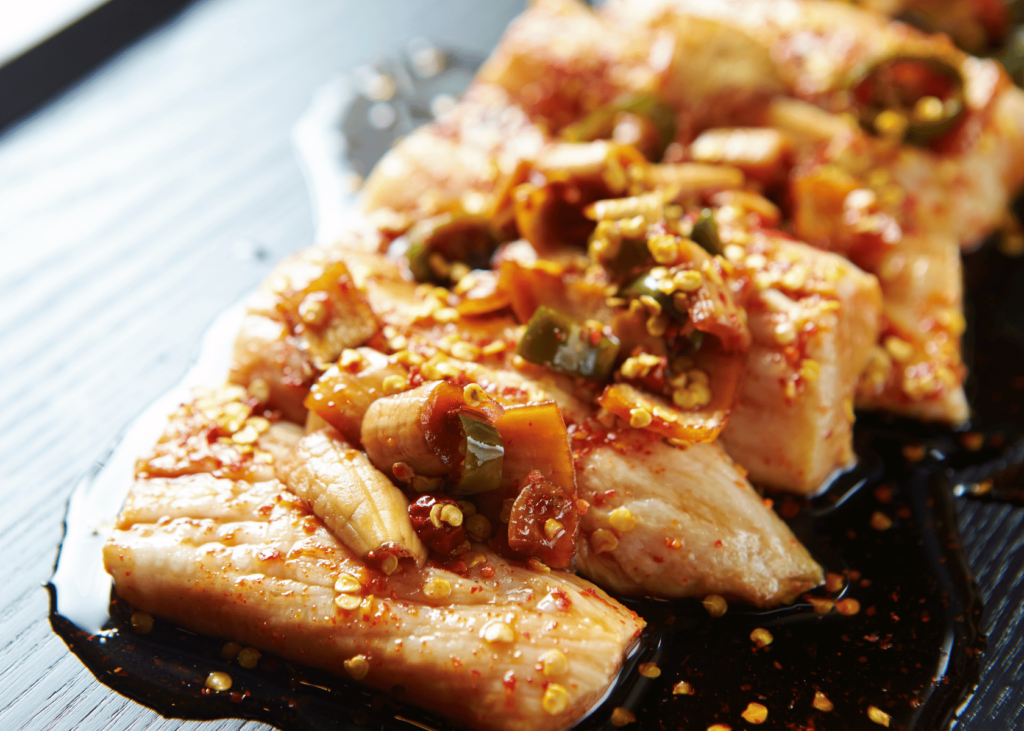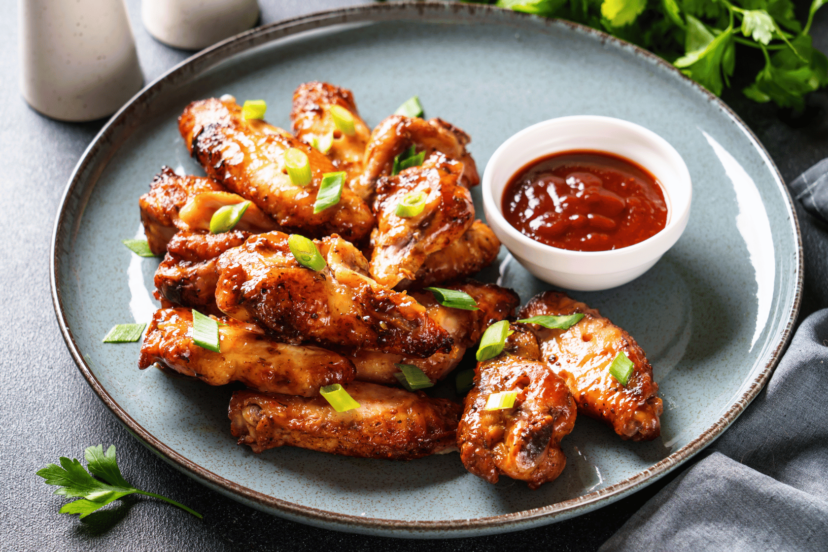Is Korean BBQ Healthy?
The sweet, savory, and smoky allure of Korean BBQ has taken the culinary world by storm, creating a social dining adventure that’s hard to match. As you sit around a fiery grill, cooking and sharing meals with friends and loved ones, there’s a sense of communal joy that accompanies the rich flavors dancing on your palate. But amidst the sizzle and aroma, a question often simmers — is Korean BBQ healthy?
In today’s health-conscious society, understanding the nutritional landscape of our favorite cuisines is essential. It’s not just about savoring flavors anymore; it’s about merging the love for food with a balanced approach to health.
Korean BBQ, with its vast array of meats and vegetables cooked in front of you, offers a unique blend of taste and nutrition. As you dip that tender piece of grilled meat into a zesty sauce, are you also dipping into a healthy dining choice?
Embark on this culinary exploration as we dissect the nutritional profile of Korean BBQ, unveil its healthful hues, and provide tips on how you can enjoy this Korean culinary gem without steering off your health track. Through the wafts of grilled delights, let’s discover what lies on the health spectrum of Korean BBQ.
Table of Contents
Nutritional Breakdown

Indulging in a Korean BBQ feast isn’t just a delight for the taste buds, but it can also be a nutritious venture. Here’s how the primary components fare on the nutritional scale and this will answer the question about is Korean BBQ healthy?
Proteins: Building Blocks of the Body
The meat served in Korean BBQ is a powerhouse of essential proteins, which are vital for muscle building, tissue repair, and overall growth. A serving of beef or pork can provide a good chunk of your daily protein requirement, making it a meat-lovers delight.
Vitamins and Minerals: Nature’s Micronutrients
The plethora of vegetables served either grilled or fresh alongside the meats are rich sources of vitamins and minerals. For instance, bell peppers are laden with Vitamin C, while leafy greens provide iron and calcium. These micronutrients play crucial roles in maintaining various bodily functions and boosting the immune system.
Carbohydrates: The Energy Suppliers
Although Korean BBQ is often seen as a low-carb option due to its meat-centric nature, the accompanying rice or noodles and some marinating sauces do contribute carbohydrates to the meal. These carbs are essential as they provide the energy needed for daily activities.
Healthy Fats: Essential yet Moderate
The fats in Korean BBQ come primarily from the meats and the sesame oil often used in marinating or cooking. While these fats are essential for hormone production and brain function, the lean nature of many Korean BBQ cuts and the moderate use of oil keep the fat content in check.
Fiber: The Digestive Aid
The fiber content in a Korean BBQ meal primarily comes from the vegetables and some of the condiments like kimchi. Fiber is crucial for maintaining a healthy digestive system and adding bulk to the diet.
Delving into the nutritional breakdown, Korean BBQ emerges as a meal that can cater to various dietary needs. It’s a blend of essential macronutrients and micronutrients, making it not just a flavorful but also a potentially balanced meal option.
Moderation and making smart choices on the grill can further align this delightful cuisine with your health goals.
Healthful Hues of Korean BBQ

The sizzling escapade of Korean BBQ isn’t merely a quest for delightful flavors but also a venture into a healthful realm. Here’s how the colorful spread on a Korean BBQ table can harmonize with your health goals and answer your question of is Korean BBQ healthy:
Lean Meats: A Healthier Choice
Among the array of meats often featured in Korean BBQ, many are lean cuts such as sirloin or tenderloin, which are lower in fat compared to other cuts. These choices offer a healthier dose of protein, aiding in muscle building and keeping unwanted fats at bay.
Vegetable-Heavy Servings: Nutrient Powerhouses
The tradition of serving a variety of vegetables, either fresh or grilled, not only balances the meaty affair but also contributes a wealth of nutrients.
The vitamins, minerals, and antioxidants found in vegetables like bell peppers, mushrooms, and leafy greens are essential for bolstering the immune system and promoting overall health.
Grilling: A Health-Conscious Cooking Method
The grilling method intrinsic to Korean BBQ is often seen as a healthier alternative to frying or sautéing. It uses less oil, thereby reducing the overall fat content of the meal.
Moreover, grilling helps retain the nutrients in meats and vegetables better than other cooking methods, ensuring you reap more nutritional benefits as you dive into the BBQ spread.
Sodium Moderation: A Considerate Approach
Although Korean BBQ can be high in sodium due to the sauces and marinades, there’s often the flexibility to moderate sodium intake by choosing less salty condiments or opting for low-sodium alternatives. This way, you can still relish the unique flavors while keeping health considerations in check.
The blend of lean meats, a bounty of vegetables, and the healthier grilling method paint Korean BBQ in a favorable light on the health canvas. The key is to navigate the BBQ spread with a health-conscious lens, making choices that align with a nutritious dining experience.
As the grill crackles and the savory aroma envelops the air, you can relish the journey knowing that healthful dining is on the menu.
Where It Might Go Wrong?

As I delve into the aspects of Korean BBQ that might tip the scale away from the ‘healthy’ label, I’m reminded that every culinary journey has its set of caution signs. Here are some areas where Korean BBQ might veer into the less-healthy territory and you might have to wonder that is Korean BBQ healthy?
Overconsumption of Red Meats
A hallmark of Korean BBQ is its generous offering of red meats. While a moderate amount can provide essential nutrients, overindulgence can lead to an intake of saturated fats and cholesterol, which might not be heart-friendly. Each bite of the succulent meat is enticing, but moderation is key to keeping the health scales balanced.
Sodium-Rich Sauces
The zest in the sauces and marinades is a flavor haven, but it’s also where sodium lurks. High sodium intake is often linked to elevated blood pressure and cardiovascular concerns. As I dip my grilled meat into a savory sauce, I’m mindful of the sodium that comes along with the zest.
Harmful Compounds from Grilling
Grilling, despite being a healthier cooking method, has its downside. The process can lead to the formation of harmful compounds like heterocyclic amines (HCAs) and polycyclic aromatic hydrocarbons (PAHs) when meats are cooked at high temperatures.
These compounds are associated with potential health risks, and as the smoke rises from the grill, it’s a reminder to grill wisely and perhaps marinate meats to reduce these compounds.
Sugar-Laden Marinades
The sweet undertone in the marinades comes from sugars which, when consumed in excess, can be a precursor to various health issues like obesity and diabetes. The caramelization of sugar as the meat grills is a sight to behold, but it’s also a nudge to be cautious about sugar intake.
Navigating through the Korean BBQ experience with a health-conscious compass requires a blend of indulgence and moderation. The challenges are there, but with informed choices, the path to enjoying Korean BBQ while keeping health in check becomes clearer.
As I revel in the camaraderie and the culinary dance of flavors, I’m armed with the knowledge to make choices that align with a nourishing and joyful dining experience.
Making Korean BBQ A Healthier Choice
The journey through the smoky allure of Korean BBQ doesn’t have to be a guilty pleasure. With a few tweaks and mindful choices, this culinary escapade can align well with health-conscious dining. Here are some tips:
Opt for Leaner Meats
Choosing lean cuts like sirloin or chicken over fattier options can help keep the fat content in check. It’s a simple switch that doesn’t compromise the essence of the BBQ experience.
Ramp Up the Vegetables
Incorporating a larger variety of vegetables on the grill or in side dishes not only adds a nutritional boost but also a colorful, flavorful expansion to the meal.
Mind the Sauces
Opting for lower sodium and sugar-free sauces or making your own marinades with fresh, natural ingredients can drastically cut down on unwanted sugars and sodium.
Portion Control
Engaging in portion control, balancing the meat with veggies, and maybe even sharing a wider variety of dishes can lead to a more balanced and healthful meal.
Grill Smartly
Reducing the grilling time, avoiding charring the meat, and marinating with herbs and spices can help mitigate the formation of harmful compounds during grilling.
Conclusion
The narrative of, “is Korean BBQ healthy” intertwines with the broader story of enjoying food while nurturing our health. As we dissected the various components and health implications, it’s evident that Korean BBQ can be both an indulgent and health-conscious choice.
It’s about making informed decisions on the grill and at the table, embracing the communal joy, and savoring the flavors responsibly. The zest, the colors, and the camaraderie that Korean BBQ brings to the table is a culinary celebration that, with a touch of mindfulness, can also be a toast to good health.
As you gather around the grill next time, you’re not just sharing a meal but a venture into mindful, joyful, and healthful dining.
*We may earn a commission for the purchases made using our links. Please see our disclosure to learn more.




